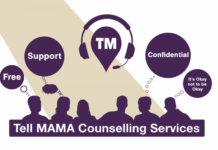The Charity Commission has launched a new online register of charities which makes it easy to find out how effectively charities are spending your money.
The register means that donors can now easily discover:
- What the annual income and expenditure of a charity is.
- The percentage of donors’ money a charity is spending on charitable activities.
- The percentage of donors’ money a charity is spending on fundraising activities.
- How much charities pay their senior staff.
- Whether a charity has been subject to regulatory action or is of ongoing concern.
For example, Islamic Relief is the UK’s largest Muslim charity with an annual income of nearly £128 million, which includes over £1m of government money.
In 2018 it spent nearly £11m of that income on raising funds, and over £114m on charitable activities (89% of donations).
Islamic Relief has 457 employees and pays eight of them over £70K a year. One employee earns £90K to £100K.
More detailed information about any registered charity’s accounts is also available in the register should donors wish to dig deeper.
Charity Commission CEO Helen Stephenson said: “Recent months have shown us how strong the volunteering spirit of the British public is, and how deep generous support for charities runs in our society. The register has an important role to play in informing and inspiring that generosity. And my principal ambition for the new register is that it is used, and used increasingly widely, in helping people make informed choices about the charities they want to support.
Subscribe to our newsletter and stay updated on the latest news and updates from around the Muslim world!
“Decisions around charity are deeply personal. They are influenced by who we are, and where we come from, by the experiences we’ve had and those we’ve witnessed among our friends and families. As people make those choices it is crucial that they know where to go to check whether an organisation that approaches them for support is a registered charity, with all the added protections that brings.
“And beyond that, we know that almost all of us, regardless of our personal sympathies and areas of interest, share basic expectations of charities: we want charities to be open and transparent about the way they work, and how they spend their money.”






















